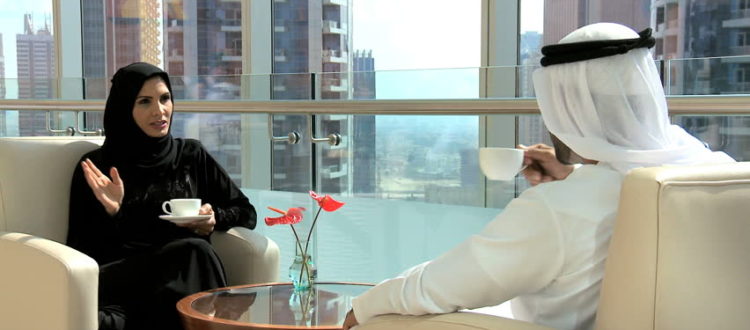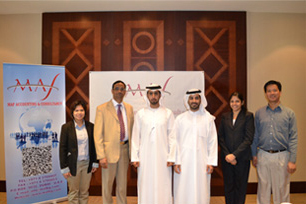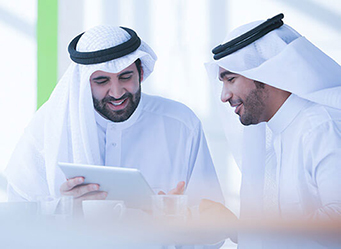The total value of UAE´s foreign trade in the first half of 2012 touched Dh499 billion compared to Dh451.6 billion for the same period in 2011, recording an increase by Dh47.4 billion, up by 10.5 per cent, the National Bureau of Statistics (NBS) showed on Sunday.
The NBS said that the imports have also increased in H1 of 2012 to Dh321.4 billion compared to Dh286.3 billion for the same period of 2011, up by 12.3 per cent.
NBS figures showed that the national exports amounted to Dh77 billion in the first half of 2012 compared to Dh55.1 billion for the same period of 2011, up by 39.7 per cent and the re-exported commodities have increased to Dh100.5 billion during H1 of 2012 compared to Dh110.2 billion for the same period 2011, down by 8.8 per cent.
“About 30.2 per cent of the imported materials are heavy equipment and appliances at a cost of Dh97.1 billion,” NBS said, adding that re-exports sector witnessed tangible improvements in the last three years.
“Re-exports recorded Dh65 billion in 2009. In 2010, it increased to Dh95 billion; in 2011 it went up further to Dh110.2 billion and down to 100.5 billion in 2012,” NBS figures show.
The total non-oil foreign trade rose to Dh77 billion in the first half of 2012 compared to Dh55.1 billion in 2011, registering a 39.7 per cent increase, NBS said.
“Non-oil industries have started to increase steadily since 2009 when it was only Dh30 billion and in 2010 it rose to Dh40 billion. However, the figure increased further in 2011 to Dh50 and it went up further to Dh77 billion in 2012,” according to NBS.
Major trading partners
Non-Arab countries in Asia were the main trade partners of the UAE in the first half of 2012.
“Non-Arab Asian countries ranked first amongst UAE trade partners with traded commodities amounting to Dh230.4 billion, 46.2 per cent of the traded volume of commodities with the rest of the world,” NBS revealed.
NBS said: “The EU came second with a traded amount of Dh107.2 billion in H1, 2012, constituting 21.5 per cent of the UAE´s trade exchange with other blocs. The American countries came third with traded commodities worth Dh46.6 billion, recording 9.3 per cent, and the GCC came forth with Dh46 billion at a ratio of 9.2 per cent of the UAE foreign trade exchange with other countries.”
Dr Mohammad Amerah, chief economist at the Sharjah Chamber of Commerce and Industry, told Gulf News: “Such figures reflect that the county is following strong economic and strategic plans and is diversifying its economic activities compared to other countries which face recession and serious economic difficulties and hardships.”
“The growth of the UAE´s national industries and commercial services as well as stability have contributed to the confidence and trust of the investors to have businesses in the country and various trade exchanges with the UAE,” said Amerah.






